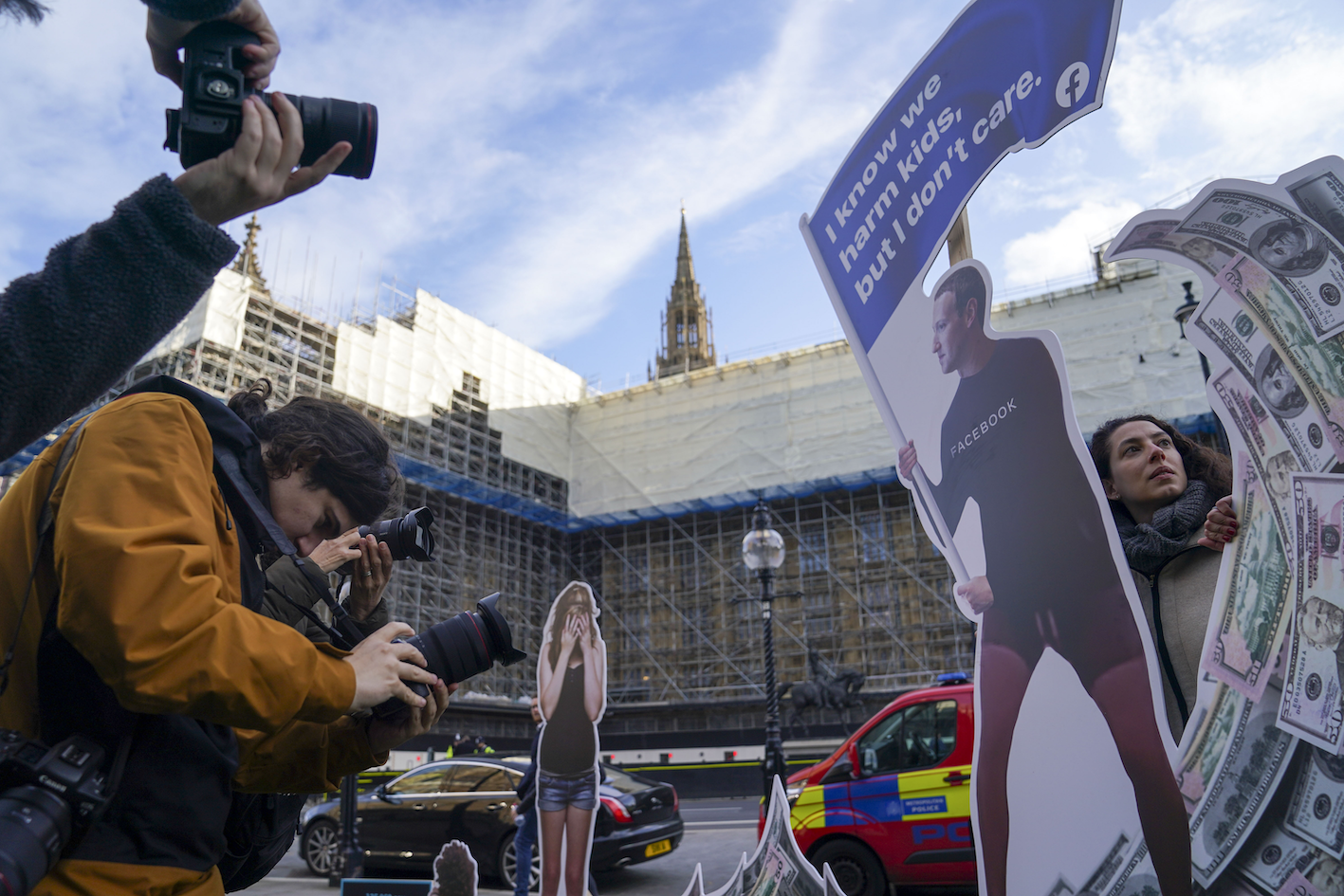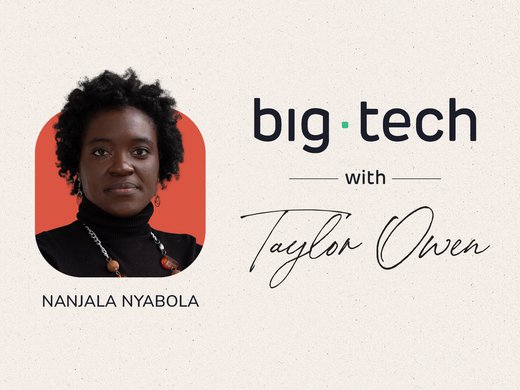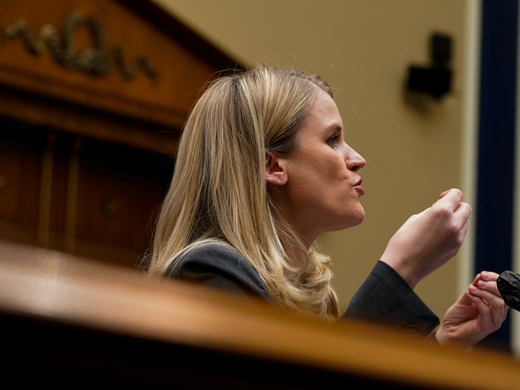On February 24, Russian President Vladimir Putin launched an invasion of Ukraine, with the stated goal of removing the country’s democratically elected government. Thousands of Ukrainian civilians have been killed and millions are refugees. Access to international media in Russia, including social media platforms, has been cut off.
Globally, Russian disinformation and propaganda now confront facts and evidence of war crimes gathered by journalists and non-governmental organizations. The lasting impact on internet regulation and speech online remains to be seen.
CIGI asked six experts, “How do you expect the Russian invasion of Ukraine will affect the global discussion around disinformation and platform governance?” Below are their responses.
Blayne Haggart, Centre for International Governance Innovation
The Russian invasion of Ukraine has the feel of a world-historic turning point in global politics. For my part, I will be looking to see if it leads to a reconsideration of what we mean by the “global” internet. “Global” and “globalization” can take different forms. The specific characteristics of the “global” internet as it’s existed since the 1990s, privileging cross-border flows of commercial and political information and the dominance of US companies, were a consequence of the United States’ unprecedented unipolar power. That world is now gone.
It will be harder to maintain the polite fiction that states do not (or should not) matter in internet or platform governance. The surprisingly decisive US and European responses (the United States’ mattering more by orders of magnitude) hammered home the enormous structural power wielded by the United States, including via American companies. Countries such as China will certainly consider the cost of becoming ever more dependent on the United States. For smaller, democratic countries like Canada, it’s a reminder that dependence on foreign companies comes at a cost.
The legitimacy of priorities other than maximizing interconnection and interoperability will probably increase.
Internationally, we should see a continuation of greater state involvement in internet and platform regulation, a trend that predates the invasion.
While some worry this could result in a “splinternet,” more likely is a redefinition downward of the “global” internet, where the network may have a global reach, but regulation and companies may be more local, regional or bloc-based. The legitimacy of priorities other than maximizing interconnection and interoperability will probably increase. This would not necessarily be a negative outcome, to the extent that it leads to greater democratic oversight and sets more-stringent conditions for non-democratic countries to participate in the global community. The challenge will be to ensure that regulation is accountable and in the public interest, reflecting more than just security concerns.
Kyle Hiebert, Researcher and Analyst
Western audiences may think the Kremlin’s domestic propaganda machine is appalling, but autocrats elsewhere will be looking on with envy.
Russia’s brutal invasion of Ukraine has been the most intensely recorded conflict in history. Unfiltered content is being uploaded and broadcast on social media daily, minute-by-minute in real time, and then amplified in coverage by traditional outlets. Yet most of Russia’s 116 million-plus internet users — more than three-quarters of whom spend hours online each day — have been remarkably insulated from the truth of what’s happening.
One factor is the silencing of independent media and foreign news organizations in Russia. Another is how Russia’s digital ecosystem has been steadily closed off from the world in recent years due to the Kremlin’s aggressive pursuit of digital sovereignty.
The United Nations … is in the midst of crafting a new global anti-cybercrime treaty based on a Russia-led resolution adopted in December 2019. … Expect illiberal regimes to be big advocates of the UN treaty going forward.
Also known as cyber sovereignty, this refers to a national government asserting control over its domestic cyberspace — from data and software to online services and digital protocols and infrastructure. This occurs to some degree in every country, China’s Great Firewall being the most extreme example.
The United Nations, however, is in the midst of crafting a new global anti-cybercrime treaty based on a Russia-led resolution adopted in December 2019. Rights groups warn this may become a Trojan horse to legitimize pro-authoritarian models of digital sovereignty under the guise of combatting crime.
Russia’s digital iron curtain has some intrinsic weaknesses. But having now seen the Kremlin’s ability to command public thought and the flow of information, expect illiberal regimes to be big advocates of the UN treaty going forward.
Courtney Radsch, Centre for International Governance Innovation
Reticence to expanding content moderation and to holding companies accountable for their roles in facilitating propaganda will fall by the wayside in the wake of Russia’s illegal invasion of Ukraine and the retaliation by Western tech companies.
After years of inaction and ineffective interventions to stave disinformation, US-based tech platforms have announced a slew of bespoke approaches to tracking, labelling and countering Russian state content on their platforms, blocked and demonetized scores of Russian state media accounts in Europe (but in many cases not the rest of the world), and cut off some core infrastructure services.
These responses underscored the fact that state-sponsored propaganda had flourished for years on social media platforms that assumed no responsibility, thanks in large part to Section 230 of the US Communications Decency Act, including in countries that censor those same platforms for their own populations (think Chinese officials and state media using Facebook and Twitter despite bans on their use inside China). The fact that former President Donald Trump had been deplatformed while the Kremlin and the Taliban got to keep churning out their propaganda just seems wrong.
The internet governance community of technologists, academics, civil society and governments will want to identify what core internet services should be off limits and not be enlisted to combat disinformation or impose government sanctions.
There will be more robust discussions around where in the “internet stack” content moderation should take place — that is, conscripting a wider array of application and infrastructure-level services and platforms (like internet service providers, Content Delivery Networks, payment processors, app stores and so forth) into the fight against disinformation and getting away from the whack-a-mole approach of focusing on individual pieces of content.
At the same time, the internet governance community of technologists, academics, civil society and governments will want to identify what core internet services should be off limits and not be enlisted to combat disinformation or impose government sanctions. Countries that have incubated the world’s most popular platforms have seen these same platforms weaponized against them by geopolitical opponents and will now be willing to rethink what respecting freedom of expression really means in the platform era.
Inga Trauthig, University of Texas at Austin
The war on Ukraine has understandably launched a renewed discussion about the geopolitical impact of social media companies. Their company decisions can impact world politics, which America awoke to after Trump’s election in 2016.
First, and especially in wartime, successful manipulation or persuasion has immediate effects. War is a hectic and chaotic event. It is basically a state of constant claims – who has the more powerful military equipment, who has the better morale on the battlefield, who has which external support. For example, the convincing and authentic communication via social media by Ukrainian president Volodymyr Zelenskyy continues to instill a sense of determination among many Ukrainians against a more powerful enemy. Second, reliable information is much needed but scarce since multiple forces are trying to meddle and participate in the ongoing information war. People on the ground urgently need information to increase their personal safety or facilitate an escape. In Ukraine, social media, and especially chat apps, are vital for both these reasons.
The global discussion around disinformation and platform governance will likely increase its focus on smaller platforms, and especially chat apps, that have developed into actors of immense political significance.
While some companies, such as Meta, have grown accustomed to being in the political spotlight, due to previous experience as well as corporate structure, others, such as Telegram or Signal, are waking up to the ways their platforms are being used in war. Their responses are guided by their respective corporate organizations and backgrounds. This means the global discussion around disinformation and platform governance will likely increase its focus on smaller platforms, and especially chat apps, that have developed into actors of immense political significance.
Natasha Tusikov, York University
Russia’s invasion of Ukraine has brought renewed attention to technology companies’ market power as states, companies and civil-society groups debate how best to address the Russian government’s online propaganda campaigns. Social media companies’ efforts — undertaken independently and at the behest of states — again demonstrate the arbitrary, unaccountable nature of platforms as regulators, as regulation of disinformation remains troublingly ad hoc.
Debates here need to move beyond binaries of free speech versus government censorship (as with Canada’s broadcasting regulator ordering the removal of Russia Today) and democratic versus authoritarian countries (as there are important differences in content quality and state regulatory legitimacy). Instead, we need to consider carefully what rules (and regulators) are needed to best regulate illegal and harmful speech and weigh the possible consequences, including of cutting off ordinary Russian citizens from reputable foreign news sources that counter Russian regime propaganda.
More attention is also needed to examine the role of companies other than social media, particularly payment providers. Credit card networks Visa and MasterCard suspended their operations in Russia, while Google and Apple halted their payment services within Russia. Russia’s war against Ukraine requires a strong response from the international community, including from important corporate actors like financial institutions and networks like SWIFT. But we need to think carefully about how the concentrations of market power, especially among big US platforms, may be used in the next conflict, especially in a scenario where an authoritarian United States is the aggressor.
More attention is also needed to examine the role of companies other than social media, particularly payment providers.
Heidi Tworek, Centre for International Governance Innovation
At first glance, it seems that Russian disinformation and misrepresentations have failed. Most of the population and politicians believe Ukraine and support its fight to preserve democracy. But the full story is more complicated. Carl Miller’s work indicates that Russia is not targeting Europe and North America as much as Africa, Asia and Latin America. A global conversation would acknowledge a far more complicated global reality rather than extrapolate from Europe or North America to the rest of the world.
More broadly, this may mark the moment when platforms finally realize that the dream of global content moderation is over. Russia’s ban on platforms such as Facebook and Instagram for “extremism” does not come wholly out of the blue. It is another step in attempts by Russia and some other less-than-democratic regimes to create “a sovereign internet.” We have barely begun to reckon with what these developments mean for platforms and for the future of global platform governance.
More broadly, this may mark the moment when platforms finally realize that the dream of global content moderation is over.



